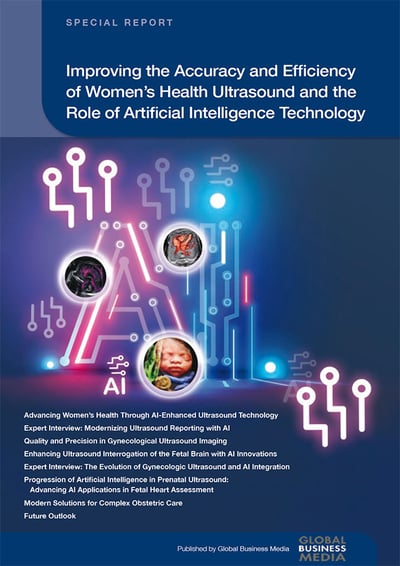AI Journal
Improving the Accuracy and Efficiency of Women’s Health Ultrasound and the Role of Artificial Intelligence Technology
For both healthcare systems managing resource constraints and practitioners seeking to optimize clinical workflows, implementing innovative approaches to enhance diagnostic capabilities and streamline care delivery has become an increasingly pressing priority.
 Special Report
Special ReportHealthcare providers face mounting challenges in women’s health, from rising rates of chronic conditions to increasingly complex pregnancies requiring sophisticated diagnostic and therapeutic approaches. The integration of artificial intelligence into medical imaging, particularly ultrasound technology, represents a transformative advancement that promises to address these challenges while improving diagnostic accuracy and patient outcomes. For both healthcare systems managing resource constraints and practitioners seeking to optimize clinical workflows, implementing innovative approaches to enhance diagnostic capabilities and streamline care delivery has become an increasingly pressing priority.
Through a series of evidence-based articles and expert perspectives, this report explores the revolutionary impact of AI-enhanced ultrasound technology in women’s healthcare. The collection begins with an examination of how artificial intelligence is transforming ultrasound imaging, particularly in improving image quality, reducing operator dependency, and enhancing diagnostic accuracy. This is followed by an insightful interview with Dr. Alan Fishman on modernizing ultrasound reporting through AI integration. The third article delves into quality and precision in gynecological ultrasound imaging, highlighting how modern systems incorporating AI and adaptive technologies have significantly improved detection rates while reducing the need for repeat examinations.
Dr. Elena Sinkovskaya then provides a comprehensive analysis of AI innovations in fetal neurosonography, focusing on advanced volume techniques for improved maternal and fetal outcomes. This is followed by Dr. Ilan Timor’s expert insights into the evolution of gynecologic ultrasound and AI integration. The sixth article, authored by Dr. Martin Chavez and Dr. Julia Kim, examines the progression of AI applications in fetal heart assessment, demonstrating how automation is transforming fetal cardiac diagnostics. The seventh article explores modern solutions for complex obstetric care, examining how patient-centered approaches supported by AI and rapid diagnostics are transforming care delivery in high-risk pregnancies. The final article provides a forward-looking perspective on emerging technologies and their implications for future practice.
Together, these articles and expert perspectives demonstrate how technological innovation is reshaping women’s healthcare delivery. From enhanced imaging capabilities and workflow optimization to improved accessibility and cost-effectiveness, AI-powered ultrasound platforms are addressing longstanding challenges in healthcare delivery while expanding access to high-quality diagnostic services. As these technologies continue to evolve – exemplified by systems incorporating sophisticated deep learning algorithms – we will likely witness further improvements in diagnostic accuracy, clinical workflow efficiency, and ultimately, patient outcomes.
Dr. Jonathan D. Agnew
Editor, Global Business Media
Dr. Jonathan D. Agnew
Editor, Global Business Media
Jonathan D. Agnew PhD, MBA, is a medical writer and Adjunct Professor in the Faculty of Medicine at the University of British Columbia. He holds a PhD in health services research from the University of California, Berkeley, an MBA with distinction from the University of London, and an AB (hons.) in community health from Brown University